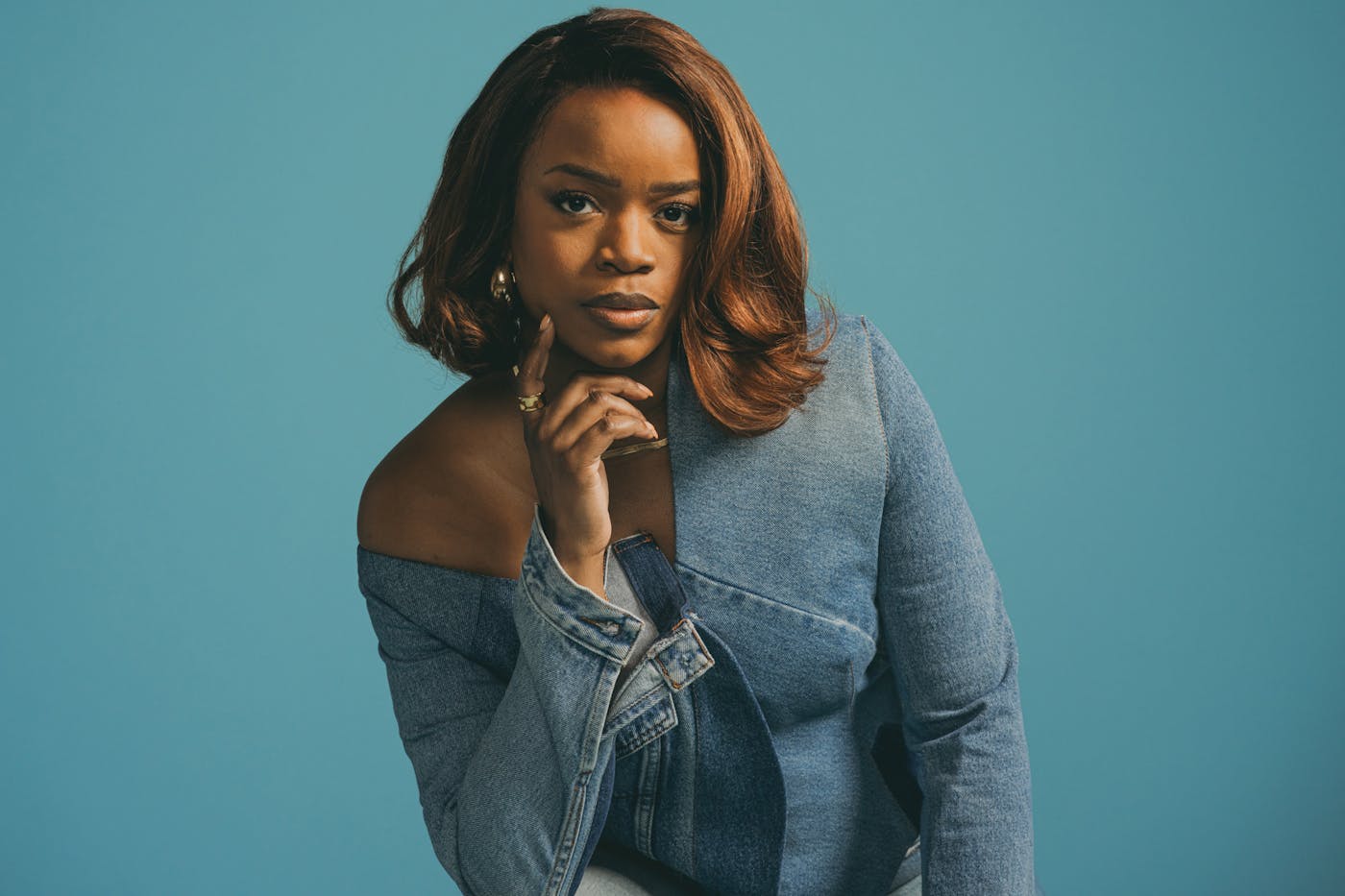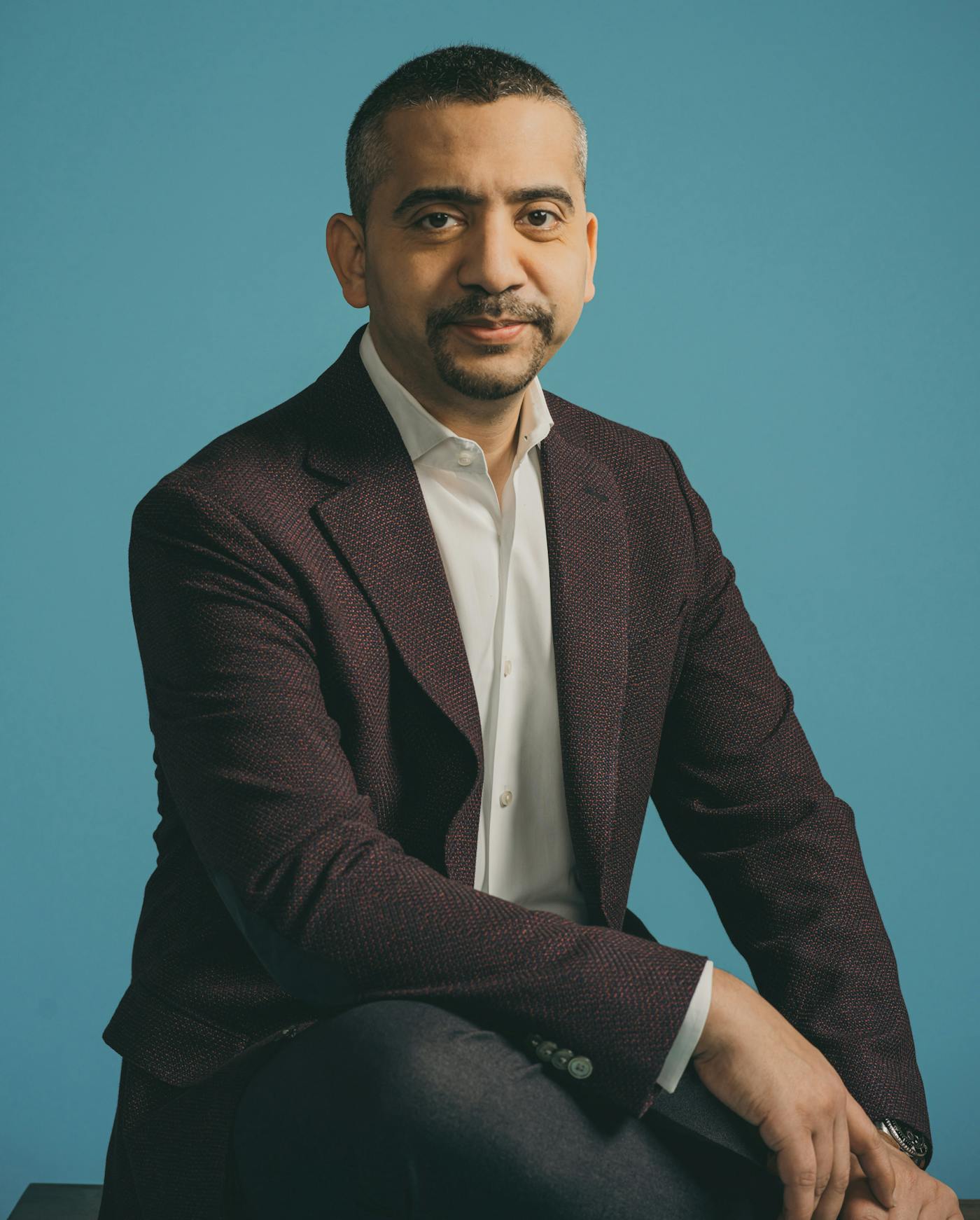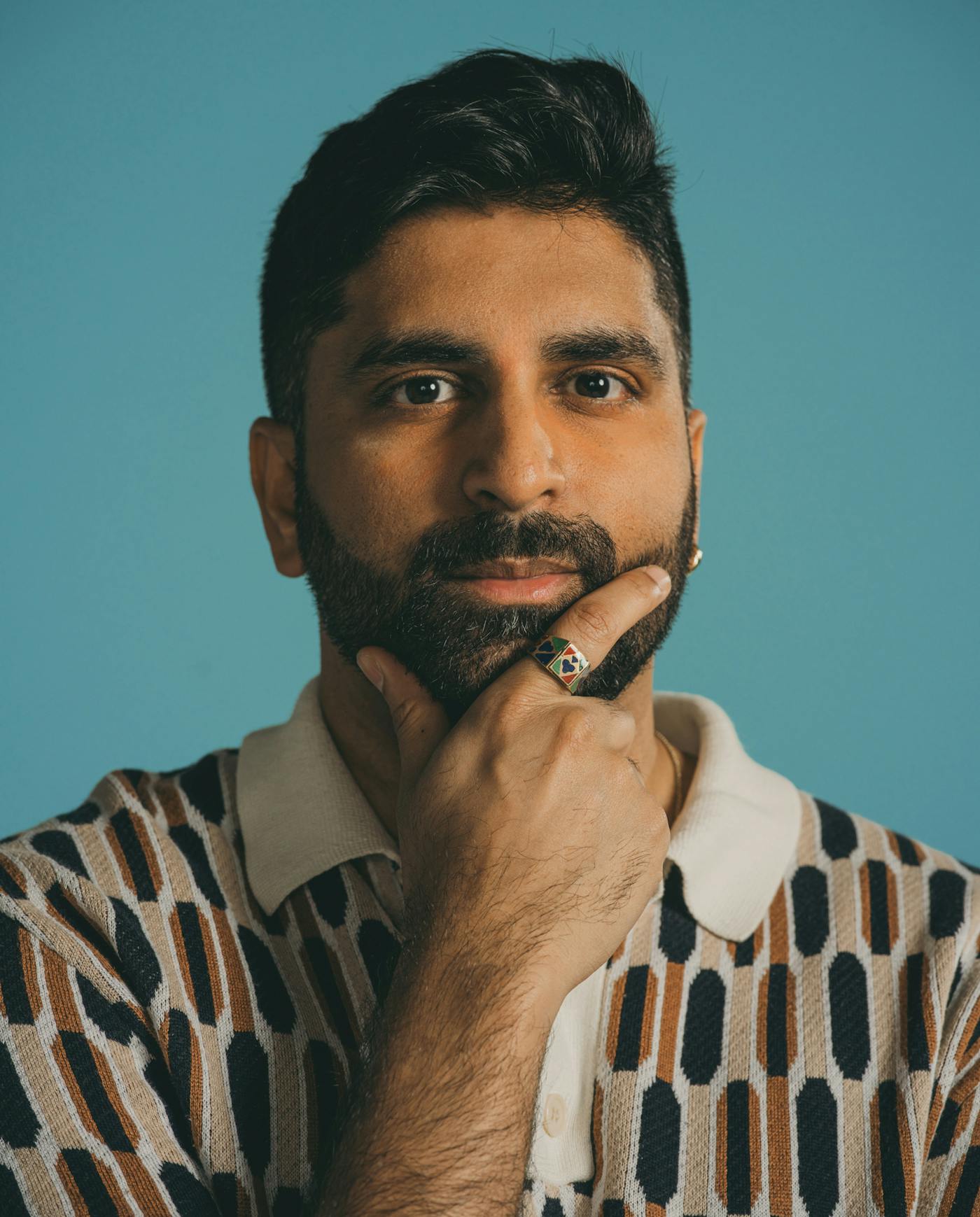The White House Correspondents’ Dinner, that lavish, storied fundraiser held every April at the Washington Hilton to honor journalists covering the capital, confers on its deep-pocketed attendees the implicit assurance that they belong among the powerful. Buy a ticket, and between your terrine of jumbo lump crabmeat and your foraged wild mushroom ragout you will have the chance to chat with someone of superlative influence: if not a lawmaker, then a reporter granted coveted access; if not a reporter, then a celebrity; if not a celebrity, then a well-heeled media financier. Excluding Donald Trump, every president since Calvin Coolidge has attended the event.
Meanwhile, with a few notable exceptions, the newspapers, magazines, and TV networks where these reporters work are inexorably shrinking, disappearing. Mass layoffs, buyouts, closures—the legacy institutions trample their own inheritance; the startups stutter and stop. Social platforms tug at our scarce attention. “Is the Media Prepared for an Extinction-level Event?” asked one recent headline. There’s much to worry about in this unsettling new journalistic landscape, and the future of democracy sometimes feels like the least of it.
Of course, it’s hardly news that traditional media has in many ways been superseded by social media, even as the platforms themselves rapidly morph—Twitter’s sad devolution into the chaotic world of X and TikTok’s uncertain future in the United States offering cases in point. There are many excellent reasons to mourn this development, but a few aspects, we insist, are worth celebrating, particularly the famous leveling of the playing field, where, in theory, anyone has access to anyone. In the spirit of celebration, The New Republic sought to identify an alternative set of political influencers: 25 people shaping our national conversations whom you’d be less likely to find at the Hilton in April (though we’re not, to be clear, ruling out their appearance).
The term “influencer” is more typically applied to lifestyle gurus hawking subscription smoothies, and some of the people on our list—who care passionately about trans rights, abortion rights, the Supreme Court, the war in Gaza, police brutality, and criminal justice reform, to name just a few of their preoccupations—might balk at the description. But the members of this stylistically and ideologically heterogeneous bunch are all trying to influence us, in the best sense of the word—to engage us, change our minds, compel us to act. They are activists, lawyers, historians, comedians, media critics, journalists, and, yes, a few politicians. If their medium is unapologetically contemporary, they display a commitment to old-fashioned principles: that communication breeds community, that educating the public is not in vain, and that it would be dangerous, especially in an election year of staggering consequence, to leave politics to those walking the halls of power.
Rhiannon Hamam, Michael Liroff, and Peter Shamshiri
“The media tends to talk about the law and the courts as if they exist outside of politics and ideology. We want to make the case that you can only really understand the Supreme Court as a political institution that crafts policy without real democratic input.” –Peter Shamshiri, 5–4
Reeling from the Supreme Court conservative supermajority’s gutting of many long-cherished rights, thousands of listeners have turned to 5–4, a podcast founded in 2020 by three lawyers: Rhiannon Hamam, Michael Liroff, and Peter Shamshiri. The show is an irreverent and sometimes vulgar exploration into, as its tagline puts it, “how much the Supreme Court sucks.” Episodes cover individual SCOTUS decisions, from the most infamous to the lesser-known-but-equally consequential, as well as explore the seamy underbelly of American legal education and culture. “The media tends to talk about the law and the courts as if they exist outside of politics and ideology,” said Shamshiri, who was publicly known only as “Peter” until late 2022, when his employer, a major insurance company, found out about the show and promptly fired him. “We want to make the case that you can only really understand the Supreme Court as a political institution that crafts policy without real democratic input.”

Kat Abughazaleh
Media Matters for America, a progressive research and information center devoted to correcting conservative misinformation in media, has been plying its trade since the dawn of digital journalism, but there’s never been anyone on staff quite like Kat Abughazaleh, who “watches Fox News for a living,” as she puts it, and was seemingly born to conquer the video realm—her standout work on YouTube and TikTok (@katmabu on those platforms and @abughazalehkat on X) has earned her a legion of fans. Abughazaleh’s work exemplifies a key lesson that so many others who have attempted the fabled pivot-to-video forgot to learn: You can’t just point a camera at something and call it a day. Video isn’t done, it’s made; the two key ingredients being whip-smart writing and editing. Whether Abughazaleh is laying waste to right-wing talking points, explaining the latest culture-war obsession in conservative circles, or tormenting Tucker Carlson, her work brims with wit that’s more Edgar Wright than Beltway wonk. “In such a chaotic media ecosystem, many bad actors are counting on people to feel overwhelmed,” Abughazaleh told The New Republic. “I hope that my videos help counteract what right-wing media are pushing.”
Imani Barbarin
There are more than 42 million Americans with disabilities today—but still they’re often left out of our conversations about politics. Imani Barbarin takes issue with that. The disability rights activist, who posts as @crutches_and_spice, is trying to change how we talk about bodily autonomy. If she uses her platform to share her own experiences with cerebral palsy, she also zooms out to the bigger picture, discussing disability, ableism, racism, and, more generally, what it means to take care of your mental, physical, and spiritual health in 2024. She reminds people that Covid still exists, she advocates for reproductive rights, and she’s never afraid to call out those on the left when they deserve it. She has been a vocal critic of the Biden administration and its support for Israel’s atrocities in Gaza, which she has called a “mass disabling event.”
Averie Bishop
Averie Bishop is used to being first: the first in her family to complete a four-year college degree; the first Asian American to win Miss Texas, in 2022; and, if she wins her race for the seat in Texas’s House District 112, northeast of Dallas, the first Filipino American to serve in the state House. Bishop, whose handle is @averiebishop, downloaded TikTok on a whim around 2019 to chronicle her life as a first-year law student at Southern Methodist University. (“I’ve been on Insta since like seventh grade.”) Her Miss Texas tenure took a high-profile political turn with the Dobbs decision, when she began posting pro-choice videos. And when Bishop announced her candidacy last August, her robust social media campaign likely helped deter potential Democratic primary opponents from entering the ring. Her videos range from day-in-the-life snippets to conversations with voters about how to fill out a primary ballot and where to research candidates. Bishop herself is quick to point out that her considerable following “doesn’t exactly convert to monetization.” Raising money, she lamented, is “a pain point for a young woman of color.” She’ll face an uphill battle against incumbent Angie Chen Button (the district was recently redrawn redder) as she beats the drum for diversity and inclusion policies—which were recently outlawed in the state’s higher education system.
A.B. Burns-Tucker
A.B. Burns-Tucker, a graduate of Southwestern Law School who goes by @iamlegallyhype on social media, attracted her sizable TikTok following by making irreverent, lively explainer clips about complex legal and political issues in the news. Burns-Tucker started posting videos in 2020, as a way of drawing attention to the plight of her younger brother, Brandon Parks-Burns, who was sentenced to 50 years to life in prison for a murder that happened when he was 15 (he maintains his innocence). Today, Burns-Tucker is a board member of California Innocence Advocates and hosts a weekly segment, “Believe the Hype,” on the nationally syndicated radio show The Morning Hustle. She seeks to make current affairs intelligible to an audience historically ignored by the media. “I figured I could put the information out there in a way that people will understand, enjoy, and be able to interpret,” she told the Black News Channel in February 2022. As she suggested to CNN’s Van Jones in 2022, politicians ignore young people in particular at their peril; the younger generations are “bolder” and “ready to go toe to toe” on issues they feel passionate about.

Brittany Packnett Cunningham
“I really try to use my platforms to build the context that is missing from so many of our societal conversations, to help people understand the connective tissue... systems, institutions. Institutions were created, and they can be recreated.” –Brittany Packnett Cunningham
Brittany Packnett Cunningham is perhaps best known for her unflagging criticism of police brutality. As an appointee of President Barack Obama’s Task Force on 21st Century Policing, as a member of the Ferguson Commission, and as a key participant in the 2014 Ferguson protests themselves, Cunningham has helped broadcast the urgent need for police reform in the United States to a mass audience. But her political activity is not limited to any one domain: The activist, who posts as @MsPackyetti, has spoken out against gun violence, the suppression of Black history in public schools, and Israel’s assault on Gaza. “I really try to use my platforms to build the context that is missing from so many of our societal conversations, to help people understand the connective tissue”—namely “systems, institutions,” she told TNR. “Institutions were created, and they can be re-created.”
Courtney Dorritie
Courtney Dorritie is TikTok’s “Narcan fairy.” Her account is a veritable clearinghouse for important harm reduction strategies and advocacy: tutorials showing how to prevent an overdose with the nasal spray with which she’s become associated, Good Samaritan Law explainers, and vlogs that chronicle her days as a specialist at a harm reduction center in the Bronx. She dispels myths about addiction in one video, and poses for fit pics, complete with her signature dangling Narcan pouch necklace, in another. Dorritie, whose handle is @courtOoO, also documents her life as a former drug user and unhoused person, offering advice for navigating the shelter system and turning her comment section into a celebratory space for followers to share their own stories. Dorritie’s feed is as informative as it is compassionate, a digital social support system and training center. As homeless services are defunded in New York City and remain underfunded across the country, her work is more critical than ever.
Carlos Eduardo Espina
Carlos Eduardo Espina (@carlos_eduardo_espina on Instagram and TikTok) immigrated to Texas from Uruguay when he was five years old. Like many of the state’s residents who weren’t born there but “got there as fast as they could,” as Texans like to say, Espina has worked from a young age to make his adopted home a better place. Best known today for his Spanish-language politics coverage on TikTok and Instagram—including explainers on whatever draconian immigration law Republicans like Governor Greg Abbott and company have cooked up—Espina, a law student at the University of Nevada, Las Vegas, started his own nonprofit when he was just 17. He was motivated by seeing how much his hometown college, Texas A&M University in College Station, charged for a three-day soccer camp: around $400. “I was like, ‘No one can really afford that!’” he told TNR. He and his soccer-playing friends decided to offer a free camp for local kids. In the video pinned to the top of his TikTok profile, Espina describes how much money he made with his social media presence in 2023: more than $1.2 million. Half of that revenue he put toward constructing a 15-acre community center north of Houston, including soccer fields. “It’s been my dream for many years now,” he said. “Thanks to social media, we’ll be able to achieve it a lot sooner than expected.”

Representative Maxwell Frost
“I have a lot of hope for the future of the country,” Maxwell Frost, who represents Florida’s 10th Congressional District, told TNR. “I know it feels a little weird to say that now, the way things are. But I do. I do have a lot of hope.” The first Gen Z member of Congress and a former national organizing director for March for Our Lives, Frost still thinks like an activist. It’s yielded results: The 27-year-old Orlando-area native, who posts as @MaxwellFrostFL, has already used his influence to help create the first federal office focused on gun violence. He is focused on issues that are important to young people—climate change, immigration reform, ending gun violence—and his hope for the future is rooted in what he calls “the most politically active generation in this country’s history.” Despite a historically unproductive Republican-run Congress, Frost has found success by channeling his experience as an organizer. “As younger people, organizers, working people get up and run for office,” he said, he believes change will come. “That’s what gives me hope: The people are on our side in terms of the issues.”
Imani Gandy
“Abortion is still healthcare, motherfuckers”: This was the tweet pinned to the top of Imani Gandy’s X profile for the better part of March. Levying her ire at the right’s onslaught against reproductive rights, this legal expert and editor at large for Rewire News Group has, by her own description, “zero chill.” She joined Twitter in 2009 and began making a concerted effort to accrue a following a couple of years later. After Elon Musk’s takeover of the social platform, she wasn’t sure she’d stick with it: “I actually quit Twitter for a whole seven days at the beginning of this year,” she told TNR. “But I really think that in this age of misinformation and the way the platform is being run, it’s important for the ‘old hands’ to step up.” From her perch as co-host of the podcast Boom! Lawyered, Gandy (@AngryBlackLady) has debunked the junk science attacking medication abortions, punctured the “Lawyers for Fetuses” movement, and taken Constitution “originalists” to task for wanting to arm domestic abusers. “I mostly go where the abortion winds blow,” she said. She was also a fairly early adopter—among political streamers at least—of the gaming platform Twitch, streaming “Let’s Play” series and chatting with folks while she played Witcher 3, The Last of Us, and SnowRunner, an off-road driving simulation game.

The Good Liars
Jason Selvig and Davram Stiefler, the comedy duo known as The Good Liars, are best known for conducting prank interviews as a means of exposing the hypocrisy and ignorance of many on the right. In their inaugural stunt, during Occupy Wall Street, they posed as investors protesting the demonstrations. Five years later, in 2016, they released the election comedy Undecided: The Movie, in which they pranked the presidential candidates. More recently, they’ve filmed interviews at the March for Life, at NRA conventions, and at Donald Trump rallies. They also launched a podcast, The Good Liars Tell the Truth, on which they explore the news with guests from the worlds of both comedy and politics. It can be maddening, even “nauseating,” to follow the train accident that is politics these days, Stiefler observed in a conversation with TNR. “People reach out to us and say that they would not have been able to keep paying attention, that the only way to stomach politics is through humor.” In fact, he said, some of their viewers have confessed to not watching straight news at all anymore, and only keep up with The Good Liars’ videos. So if the duo didn’t start out with the aim of helping to maintain an exhausted, queasy citizenry’s connection to politics, they now embrace the mission. “We either have something extra in our brains or something missing from our brains that allows us to ... do this,” Stiefler said. “But we have enjoyed it.”

Mehdi Hasan
“My purpose as a journalist—and in life?—is to make people in power uncomfortable. Everything else is noise.” –Mehdi Hasan
Mehdi Hasan, a prominent British American journalist known for his incisive commentary and fearless questioning of his interviewees, has worked for Al Jazeera, The Intercept, and the Huffington Post UK; currently, he writes a column for The Guardian. His work often focuses on issues of social justice, foreign policy, and politics. The Mehdi Hasan Show began on Peacock in October 2020 and was hosted on MSNBC from March 2021 to January 2024. Hasan, who is Muslim, frequently critiqued Israel’s war on Gaza, and late last year the network announced it was canceling his show, a move that drew fierce backlash. An anonymous source close to the situation at MSNBC told The Washington Post the decision was unrelated to his commentary about Israel and instead the result of a “broader restructuring” of the network’s weekend lineup. In February, Hasan (@mehdirhasan on social platforms) announced he was starting a digital media company, Zeteo. He had launched the venture, he explained to CNN’s Jake Tapper, because he wanted to “be able to speak in a blunter fashion” than most people in media do, and offer a platform for others to do the same. “My purpose as a journalist—and in life?—is to make people in power uncomfortable,” he told TNR. “Everything else is noise.”

Annie Wu Henry
In 2022, if you enjoyed any of now-Senator John Fetterman’s viral TikTok posts, you can thank Annie Wu Henry. The Gen Z digital maven was the social media producer on the Pennsylvania lawmaker’s campaign and ran his TikTok account. Henry—known as @Annie_Wu_22 on social media—has also worked with Representative Alexandria Ocasio-Cortez, the Working Families Party, and Helen Gym, who lost in the 2023 Democratic primary for mayor of Philadelphia. Henry believes in the importance of using social media to connect with young progressive voters in particular. “I think, on their own, younger people on the left have harnessed the power of mobilizing online where the right has not,” she told TNR. In 2024, as President Joe Biden tries to connect with young voters, that insight into how Gen Z voters operate will be more salient than ever.
David Hogg
Six years ago, David Hogg survived the Marjory Stoneman Douglas High School shooting in Parkland, Florida. Since then, he has become a leading activist for gun control and youth empowerment. Hogg co-founded March for Our Lives, a movement advocating for stricter gun laws, which flooded the nation’s capital with hundreds of thousands of protesters the month after the Parkland massacre. He has been a vocal advocate for political change, using his platform to push for legislative action on gun violence prevention. The 24-year-old (@davidhogg111 on X) recently graduated from Harvard with a bachelor’s degree in history and co-founded the Leaders We Deserve PAC, which is committed to helping elect young people to Congress and state legislatures. On social media, he engages with his audience on pressing issues and encourages civic participation. His aim, he explained to TNR, is to demonstrate to young people that our political system is not so broken that it’s unfixable. “There’s nothing more rewarding than showing other young survivors that they’re not alone,” he said. “And that we’re not powerless.”
Olivia Julianna
Nobody speaks to Generation Z quite like Olivia Julianna. The 21-year-old Houston native, who posts as @0liviajulianna, began using TikTok to get political news in 2020; for her, like many Americans, that summer’s racial justice protests were politically formative. Today, Julianna’s videos range from in-depth explainers on the right’s assaults on reproductive rights and democracy to advice for young organizers. A queer, disabled, fourth-generation Mexican American, she is a spirited guide to the political moment; her posts mock Republican hypocrisy, alert followers about upcoming elections and ballot measures, and celebrate hard-won Democratic victories. And she’s masterfully co-opted the right’s political lexicon of trolling; when Florida Representative Matt Gaetz body-shamed her on X, Julianna responded by raising more than $2 million for abortion access. If TikTok is not only where young Americans go to kill time but where they get their news, Julianna is making Democratic politics and progressive causes accessible for the next generation of voters and leaders.
Mariame Kaba
The career of abolitionist organizer and author Mariame Kaba long predates social media. She has written numerous books—including We Do This ’Til We Free Us and Let This Radicalize You—and has a preternatural knack for distilling her diverse work into memorable language. Over the decade-plus she’s been an active presence on social platforms, her refrains that “hope is a discipline” and “prison is not feminist” have become movement aphorisms that travel far from movement spaces. But Kaba, who posts as @prisonculture, is also able to move people to act: She has raised thousands of dollars for abortion funds and bail funds and documented her co-creation of a mutual aid project housed at the New York bookstore Bluestockings. Recently, she organized For the People, a leftist project in response to the attacks on public libraries, countering book bans and the conservative takeovers of library boards by helping to educate and support people who want a seat on boards governing their own community libraries. She saw Twitter as a way to “uplift local organizing, share resources, and raise funds,” but recently stopped posting—a move that was “a long time coming,” she told TNR—and joined the Twitter alternative Bluesky. A year ago, she started a Substack newsletter, Prisons, Prose, and Protest. “All of these platforms are fraught,” she said, “so we’ll see.”

Alec Karakatsanis
Civil rights lawyer Alec Karakatsanis (@equalityAlec on X) notes that most tweets and Instagram posts assume that people “know way too much about an issue.” Among many high-profile victories, he won O’Donnell v. Harris County—which resulted in a 2019 consent decree ordering Harris County, Texas, to limit bail requirements for nonviolent offenders. Around the same time, Karakatsanis started tweeting distinctive threads “that situated news in the history of, say, bail and mass incarceration.” As people began sharing his threads and approaching him about them, he thought, “How can I make this engagement actually educational?” Karakatsanis acknowledges the increasing difficulty of posting on X, now that it’s harder to embed links. “You have to think about the algorithm … how to frame the first tweet, build suspense, then give people a place to go to learn more.” After the George Floyd protests, Karakatsanis, who founded the carceral reform nonprofit Civil Rights Corps, began critiquing public assumptions and media coverage about crime. Many of his threads, he said, are in response to requests from educators, advocates, and even journalists themselves. He publishes, he said, “in service of a shared goal—to counter a lot of the propaganda around crime.” His tweets gave rise to his Substack newsletter; his 2019 book, Usual Cruelty; and Copaganda, which will be published next year.
Parker Molloy
If Parker Molloy (@parkermolloy on social platforms) has worn many hats over her long career—editor, award-winning media critic, freelance essayist—she’s brought them all to her eclectic and winningly conversational newsletter of political and cultural commentary, The Present Age, which showcases her keen eye and sophisticated critical skills. The Present Age is an excellent destination for people who want to break free from fast-and-loose takes or analysis that gets laden with in-group shorthand. This is part of the plan, Molloy told TNR: “When I’m writing a newsletter, I’m doing so with two distinct groups in mind: journalists and the average politically minded American. If members of each group can read one of my posts and come away with a new outlook on things, I’d call that a success, even if their outlook isn’t a mirror of my own.”
Bisan Owda
Bisan Owda, 25, is a Palestinian community activist and filmmaker turned war correspondent by the inescapable crush of Israel’s war on Gaza. Before the war reached the Gaza native’s doorstep, she worked with the United Nations on gender equality and the European Union on climate change. She also hosted her own TV show, Hakawatia (the Arabic word for “storyteller”), leveraging social platforms to speak on women’s rights in the Middle East. Since October 7, Owda has radically transformed her social media presence, dedicating herself to providing glimpses into the horrors and humanity from the Gazan side of the war front. In TikTok and Instagram videos, Owda (@wizard_bisan1) captures the emotional toll of the conflict—filming children protesting for a cease-fire, the desperation for food amid a systemic starvation, the tent cities built by the displaced, and, against it all, the will of the people to survive and thrive. Even before the war broke out, Owda had a powerful philosophy about the might of social media. “Online content plays a major role in shaping our conception of the world, opinions, and values,” she told UN Women, an agency promoting gender equality. “Through influencing public opinion, social media is also one of the most effective tools to mobilize and advocate for change.” Despite this, The Times of Israel has derided her as a “professional Hamas propagandist.” Still, she persists: “Hey everyone, it’s Bisan from Gaza, I’m still alive.”
Hasan Piker
If you haven’t heard of the Twitch livestreamer Hasan Piker at least once, you might be living under a rock. Piker’s goal is simple, he explained to TNR: “Make left-wing politics more accessible and more easy to digest.” With nearly 2.6 million followers on Twitch alone, Piker (@HasanAbi on Twitch; @hasanthehun on X; and @hasandpiker on TikTok and Instagram) is helping shape an entire wing of the progressive community. Nevertheless, he insists modestly that he is “not a serious figure by any means”: “Honestly, I’m still a himbo at the end of the day.” But he understands the role that the media plays in politics, and he wants to fight back against right-wing propaganda and indoctrination. If he gets even one person to change their mind, he told TNR, that’s a win. “I’ve tried to use my privilege for good as best as I can,” he said. “I think my goal is to get transphobic people to not be transphobic, right? My goal is to get racist people to not be racist.” That’s no short order, he acknowledged, but he’ll take it one stream at a time. Meanwhile, he’ll probably keep calling out Democrats for yelling at progressives in the face of rising fascism.
Jason Slaughter
Cities would be better if they were designed with people in mind, not cars. That is the fundamental belief animating the videos of Canadian YouTuber Jason Slaughter, who runs the wildly popular channel Not Just Bikes. Slaughter cares about the environment, and he laments the pollution that cars cause, but these are not the only reasons he promotes walkable cities and critiques car-dependence. A more basic and strategic rationale is at work in Not Just Bikes, where videos with titles like Why City Design Is Important (and Why I Hate Houston) get millions of views: As Slaughter has put it, his premise is simply that “driving sucks in car-dependent places.” By analyzing cityscapes in an informal and accessible style, and by arguing for the aesthetic and economic benefits of reducing car use as much as the environmental ones, Slaughter’s videos make a compelling case for an overhaul in contemporary urban planning across the globe.

Waleed Shahid
Growing up in post-9/11 Arlington, Virginia, Waleed Shahid’s Muslim parents told him not to talk about politics, because it would land him in trouble. Naturally, he did the opposite, leaping into progressive activism from a young age. As director of communications for Justice Democrats from 2017 to mid-2023, he oversaw Alexandria Ocasio-Cortez’s meteoric rise, and left just as the group began to falter. Most recently, Shahid, who goes by @_waleedshahid on X, dedicated himself to the Vote Uncommitted movement that rocked Michigan and seeks to do the same elsewhere. “Twitter is primarily a medium where operatives and journalists and organizers live,” Shahid told TNR. “Instagram and TikTok are places where voters and regular people live.” Users of those platforms also skew younger than mainstream TV news viewers; Shahid may have left Justice Democrats, but he remains an important voice informing young progressives.
Adam Tooze
Once a relatively obscure academic, Adam Tooze, a Columbia economic historian, saw his public profile skyrocket during the pandemic, when readers—including a cohort of younger men memorably dubbed “Tooze Bros” or “Tooze Boys”—flocked by the tens of thousands to his Substack newsletter, Chartbook, so named for its heavy use of visual aids. Tooze is credited with popularizing the term “polycrisis” to describe the interlocking and mutually exacerbating crises—political, social, economic, climatic—that have come to define the post-2008, post-Trump, post-Covid era. “The diverse and open-ended format of Chartbook, its regularity, what some call its relentless pace are responses to the intellectual crisis and disorientation that is the polycrisis,” Tooze (@adam_tooze on X) explained. The range of material in the newsletter, in which contemporary art, poetry, and film frequently abut data on interest rates and CO2 emissions, offers both Tooze and his audience a “psychological and emotional release,” he said, from the stultifying quality of much writing on political economy.
Molly White
Molly White daylights as a software engineer in Massachusetts. But online, White is better known as GorillaWarfare, a prolific Wikipedia editor who has written more than 100,000 edits on articles ranging from emo bands to right-wing extremism, fending off disinformation as if it’s a full-time job. While White’s contributions to the site are vast (she has, in addition, served six years on the digital encyclopedia’s arbitration committee), she is also an excellent tech critic in her own right and a reliable skeptic about overhyped arenas in the tech kingdom, offering moments of pause and reflection amid Silicon Valley’s headlong breakthroughs and the moral dilemmas they often occasion. To make sense of the whirlwind, White (@molly0xFFF on X) has developed a website, Web3 Is Going Just Great, that covers developments in blockchain and cryptocurrencies. “When I saw the cryptocurrency industry beginning to position itself as ‘the future of the web’ ... and beginning to advertise to laypeople,” White explained to TNR, “I felt that it was important to expose the dangerous and predatory industry—particularly in a time when I felt the media was mostly buying the hype.” She provides witty commentary by way of her newsletter, Citation Needed, and posts regularly to a YouTube channel. At a time when the stakes of technological development could not be higher, it helps to be able to turn to a writer who doesn’t just cover digital processes but practically lives within them.
Zooey Zephyr
Montana state Representative Zooey Zephyr came to prominence last year, when the state legislature’s far-right Freedom Caucus led the charge to censure her for remarks she made against an anti-trans bill that banned gender-affirming care for minors. Zephyr had told her fellow legislators that she hoped they would recognize the “blood on [their] hands.” It was a sentiment widely shared across the country in a year—like the year before, and the year before that—when more state-level anti-trans bills were introduced than ever before. The right’s outrage campaign backfired, revealing how Zephyr and her rhetoric were being held to a different standard than her counterparts’, and making her a national political figure. Montana is out of legislative session this year, but on social media, Zephyr (@ZoandBehold on X) continues to share news from other states’ similar anti-trans bills, in posts that focus on the legislators and activists working to stop them. She’s part of a broader network organizing against anti-trans legislation—a network moving as fast as bills are introduced and hearings are held—that no single state can shut down.




